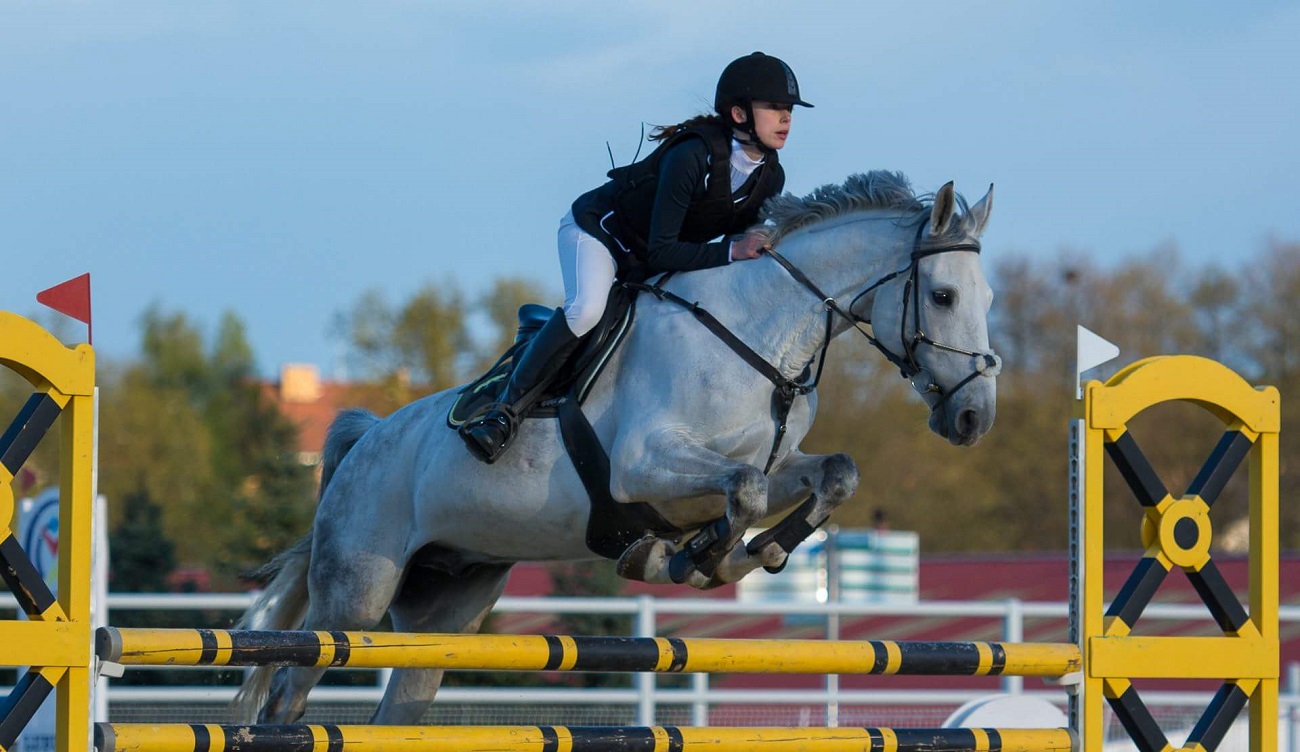From Modern Pentathlon to Medical Science, Nicole Safi caught up with Sydney University Athletic Club’s Marina Carrier to discuss the very busy life of a student pentathlete.
How were you introduced to modern pentathlon?
My family and I lived in England for a year when I was 13, and it was assumed by the master who was showing us around our new school that because I was Australian I did “all that running-shooting stuff.” I had absolutely no idea what he was talking about! He explained what modern pentathlon was, and that the school offered it as part of a program, and I just thought it would be the coolest thing to do. Undeterred by the fact that I had little to no experience in any of the five sports involved, I started training in my very first week at school and absolutely loved it!
Explain to us exactly what the modern pentathlon involves…
A pentathlon competition spans a single day, and begins with fencing every athlete in the field in a one-hit duel or bout, followed by a 200m freestyle swim, then completing a 1.2m show-jumping round on a previously unknown horse. The points from these three separate events then add up to seed your starting position going into the combined run/shoot, where you must shoot five scoring targets with a laser pistol before running 800m – four times.
How do you approach training for five different events?
I spend a lot of time with my parents and coaches working out how I can most effectively split my time and energy five ways. Currently, this means training 2-4 times a day, seven days a week, and involves a lot of running across the Uni campus with sore legs, wet hair, a sword in one hand and pistol in the other. I’ve learnt the importance of balance, organisation and communication, as well as recognising when you need a break.
Do you have a soft spot for one event over the others?
I often get asked this, and it’s a really tough question! There are definitely times when I’ll enjoy one sport more than another, or I’ll find training for one a bit of a slog, but in the end they’re all so unique and I enjoy them all for different reasons. It’s also probably best not to pick a favourite, I don’t want to start a riot amongst my coaches.
What’s your favourite sport outside of fencing, swimming, riding, running and shooting?
Tennis! I love playing it, and at the elite level I think it’s beautiful to watch. I really admire the mental and physical tenacity and athleticism the high-level players put into their game, as well as the way they handle the pressure-cooker world of the media and fan expectations.
As well as training and competing in modern pentathlon, you are completing a Medical Science degree at the University of Sydney. How do you balance the two?
I really love science, so my studies actually provide the perfect switch-off from pentathlon. I can’t be thinking about my swimming technique if I have any hope of figuring out some chemical formula or following an impossible maths calculation. Logistically, I try to coincide lectures and tutes for times I need to be in at Uni for training, so it’s all down to planning and effective time management.
How has the support of the Elite Athlete Program and Sydney Uni Athletic Club (SUAC) helped?
The Elite Athlete Program and SUAC are bedrocks of my pentathlon. The Elite Athlete Program provides invaluable on-ground support, from helping me contact people and access facilities for training, to offering an excellent Strength & Conditioning program and academic support when I’m away competing. SUAC’s Dean Gleeson is probably my pentathlon equivalent of a fairy godmother; his depth of knowledge as a coach and incredible generosity of his time, energy and humour has almost single-handedly transformed how I approach and train for pentathlon. Above all, both the Elite Athlete Program and SUAC make me feel part of a family of sporting people, and that is something that is really special to me.
Earlier this year you won your first Senior Australian Modern Pentathlon Championship. What did the win mean to you?
It was a really wonderful reward for the hard work we’ve been putting in over the last year, and a great indication that we’re on track. The riding component was also the final qualification criteria I needed to represent Australia, so it was a huge relief to nail that.
Australia’s Chloe Esposito won the Olympic Gold Medal for Modern Pentathlon in Rio, 2016. It must’ve been inspiring to see a fellow Aussie do so well in your sport…
Inspiring, emotional and just so awesome! Watching Chloe storm home in the combined run/shoot was such a triumph and a real testament to her hard work and determination. Hopefully those Europeans have learnt to be a bit more wary of us Aussies!
Tokyo 2020… is this something you’re aiming towards?
Absolutely.
